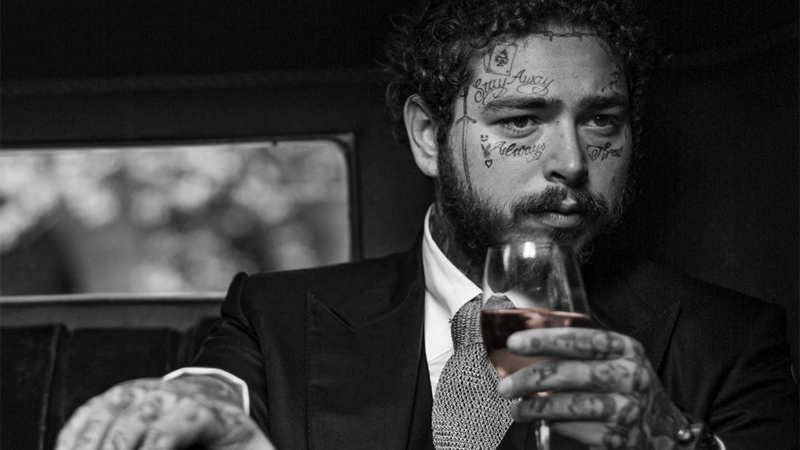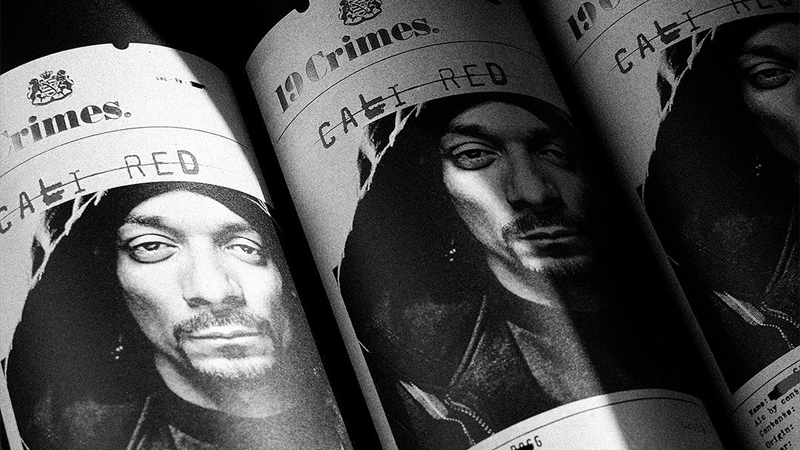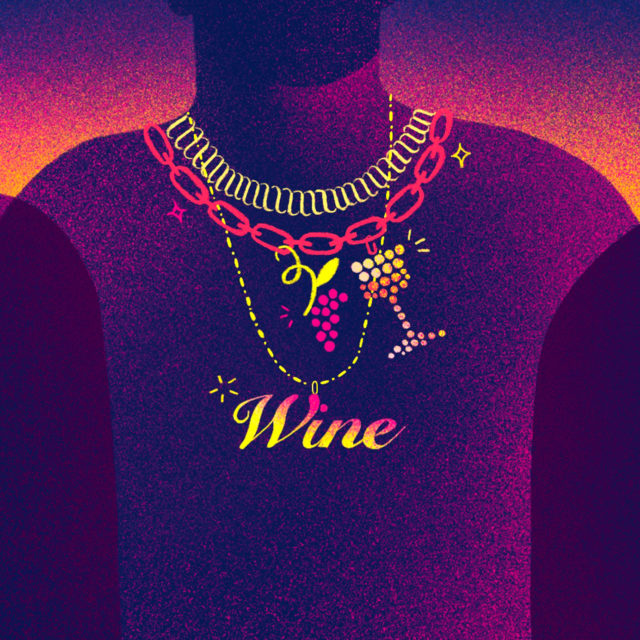Joey Bada$$ travels with a bottle of Sancerre in his rider. Although he claims to have only started drinking upon reaching legal age, now at a ripe 25 years old, the Brooklyn-born rapper has an affinity for a chilled glass of French Sauvignon Blanc. Every day A$AP Rocky spends his time drinkin’ wine, feelin’ fine, while the Migos trio — Quavo, Offset, and Takeoff — like their pours over meals at Michelin-star restaurants. And rarely do you catch Drake on his Instagram Stories or in an interview without a wine glass in hand. They don’t call him Champagne Papi for nothing, after all.
These are just a small fraction of rappers known to boast about their developed palates in song lyrics and on their social media pages. As their careers and fan bases have grown over time, so have their tastes and pleasures, and that’s never been more prevalent in the music as it is now. “Hip hop has always shown wine love. It’s always been a way of painting a more luxurious picture,” says Jermaine Stone, the wine auctioneer and CEO of Cru Luv Wines, a wine branding and marketing company dedicated to blending the worlds of wine and hip hop.
Stone, host of the podcast “Wine & Hip Hop,” adds, “Hip hop has a way of just grabbing luxury things and ingraining them into our day to day lives.”
In 2017, hip hop became the most popular music genre in the U.S. with eight of the top 10 most popular artists being rappers, according to a Nielsen Music/MRC data report. Drake and Kendrick Lamar, who once rapped about sipping Carlos Rossi’s notable jug wine, held the first and second spots, respectively. The genre continued to dominate the music industry in 2018 and 2019, and Nielsen speculates that hip hop is on track to maintain its lofty position at the top in 2020.
The significance of hip hop’s reach and influence over tens of millions of Americans, at this point, is undeniable. And the flair and cadence of rappers’ personal delights is trickling over into the wine industry more than ever. No longer are they the ones merely mentioning wine in songs, they’re selling it and it’s capturing the attention of millennial drinkers.
This development comes at a crucial time for the wine industry. Wine’s share of the drinks market dropped in 2019 for the first time in 25 years, according to research firm IWSR. The downward trend has largely been ascribed to millennial drinkers, who are increasingly drinking across category lines, often opting for hard seltzer and cocktails over wine. So can hip hop’s increasing interest help solve wine’s millennial problem?

Hip Hop’s Wine Presence
Since his 1996 debut, music mogul Jay-Z continues to floss about the finer things in life, including vintage wine like Château Pétrus. He essentially introduced his fans to the luxury bubbles of Champagne Cristal before wooing the masses with his gold-bottled Armand de Brignac Champagne — otherwise known as Ace of Spades, which he now owns. His success within the wine industry has sparked the interests of more artists looking for a way to capitalize their brand and expound on their love of wine. Now partnerships between winemakers and artists are increasing with music industry vets like E-40, Nicki Minaj and John Legend developing their own labels.
Just this year alone, hip hop rocker Post Malone traded in his beerbongs for his own rosé label, Maison No. 9. Before its official launch in June, the Grammy winner sold a whopping 50,000 bottles of the French pink wine in a two-day pre-sale and even caused the online wine retailer Vivino to crash, according to a TMZ report. Meanwhile, Snoop Dogg recently released his new wine, Snoop Cali Red — a red blend of Petite Sirah, Zinfandel, and Merlot — in partnership with the Australian wine brand 19 Crimes.

Engaging Millennials with Music and Wine
At Fantinel Winery in Friuli Venezia Giulia, CEO Marco Fantinel, calls the pairing of hip hop and wine industries a “magic formula” for generating a “modern approach in the world of wine culture, which is based on traditional and often outdated communication styles.”
Mary J. Blige, largely regarded as a queen of hip hop and R&B, partnered with Fantinel Winery to produce her Sun Goddess Wines — a bottle collection composed of a Pinot Grigio Ramato and a Sauvignon Blanc — that launched in June. “We strongly believe in the coupling of music and entertainment-wine,” says Fantinel, noting that while winemakers are great at producing the product, they are often limited in marketing and communication efforts.
With a global powerhouse like Blige backing the label, a winery’s potential to attract thirsty customers can increase significantly. “The bond with a top-level artist can certainly speed up a brand’s notoriety process. If the product is excellent as well, the result is a success,” he says.
Although wine volume sales in the U.S. have declined as millennials’ interests in other categories increases, this demographic still represents the industry’s biggest opportunity for growth. In a 2019 video broadcast, Rob McMillan, the founder and executive vice president of Silicon Valley Bank’s wine division, advised wine industry leaders to increase direct-to-consumer sales and provide more social-media-friendly wine experiences for young drinkers as a way to revive the category’s popularity among millennials.
But bridging the cultures between wine and hip hop — millennials’ most preferred music genre — could prove to be among the most beneficial means of turning attention back to wine. “The more commingling the better,” Stone says. “I’ve now seen so many hip hop and wine events and people branding themselves through hip hop and wine. And every time we do that, what it really highlights is how much each one of these things can impact people from all different walks of life — and bring people from all different walks of life together.”
This story is a part of VP Pro, our free platform and newsletter for drinks industry professionals, covering wine, beer, liquor, and beyond. Sign up for VP Pro now!
